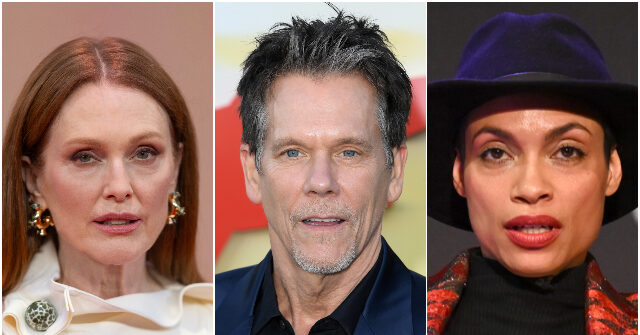In recent times, a coalition of prominent actors and industry creatives, including Julianne Moore, Kevin Bacon, and Rosario Dawson, has voiced their grave concerns regarding the implications of artificial intelligence (AI) on creativity and artistic integrity. They, along with over 11,500 other industry professionals, have signed a petition highlighting the “unlicensed use of creative works for training generative AI” as a significant and unjust threat to the livelihoods of artists and creators. This collective action underscores a growing unease within Hollywood about the potential for AI to undermine the creative process, raise ethical questions, and ultimately sift the essence of human ingenuity from the arts.
AI’s intrusion into creative industries has prompted intense discussions, particularly among actors and writers, regarding its potential to replace human talent. In 2023, actor unions, during strike initiatives, voiced apprehensions that AI technologies could render human performers obsolete, with specific fears centered around the unauthorized replication of their likenesses and voices. This anxiety was echoed in the video gaming sector, where voice actors organized strikes due to concerns over being replaced by AI systems. Such sentiments reflect a broader ethos within Hollywood that sees AI as a looming threat to the integrity and authenticity of artistic expression.
Surveys have shed light on the pervasive anxiety about AI within the film industry, with a poll revealing that 42% of entertainment workers fear that AI will replace human artists, thereby causing potential harm to the sector. Voices from within Hollywood have offered vivid warnings about the consequences of AI’s proliferation. Actor Nicolas Cage stressed that AI could lead to intellectual property theft, suggesting an impending future where machines usurp human roles and attributes. Additionally, actor Sean Penn characterized AI’s influence as a potential “human obscenity,” indicating deep-rooted fears about the erosion of creativity and individuality through technological encroachment.
Respected directors and writers have lent their voices to the discourse, providing alarming projections regarding AI’s trajectory. Tim Burton expressed concerns that AI could strip away essential human qualities, while James Cameron raised existential fears about AI evolving into an uncontrollable force. Ridley Scott drew a stark parallel between AI and dangerous technological advancements, likening it to a “technical hydrogen bomb.” Christopher Nolan underscored the seriousness of the matter, cautioning that the industry must prepare for an inevitable “Oppenheimer moment,” warning that accountability is crucial in the ongoing development of AI.
While many artists and filmmakers have taken a stern stance against AI, not everyone in the creative community shares the same trepidation. Actor Ashton Kutcher has notably provided a counter-narrative, suggesting that AI could democratize artistic creation by leveling the playing field, enabling more individuals to engage in filmmaking and storytelling. This perspective hints at a more optimistic view of AI as a tool for empowerment rather than a harbinger of doom, showcasing the divide in perceptions regarding AI’s potential role in the creative realm.
As the debate surrounding AI in Hollywood continues to unfold, the tension between innovation and preservation of artistic integrity remains a focal point. The concerns expressed by artists emphasize the importance of safeguarding creativity and human expression in an increasingly AI-driven landscape. The outcome of these discussions will likely have significant implications for the future of the entertainment industry, as creators navigate the challenges and opportunities presented by technologies that can reshape the very fabric of artistic creation.

